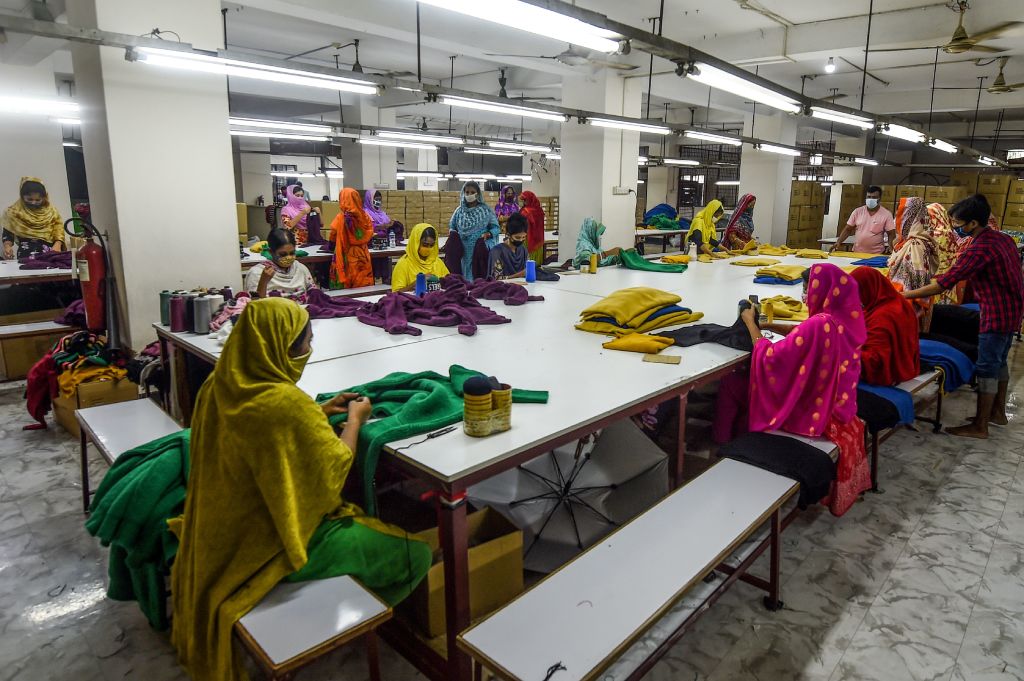11 years after Rana Plaza, the Eu adopted the Corporate Sustainability Due Diligence Directive (CSDDD) with the aim to make companies responsible for their impact on human rights and the environment throughout their supply chains. It requires businesses to identify and address any negative effects their operations might have, set up grievance mechanisms, and weave due diligence into their corporate policies. This move is all about encouraging responsible business practices.
The ETUC welcomes the CSDDD a it's the world’s first set of legally binding rules to hold EU and third country companies and their subsidiaries accountable for the violations of human rights. Europe is a frontrunner in protecting trade union and workers' rights as well as the environment. Most importantly, it will involve trade unions and workers' representatives in the development and implementation of an effective due diligence policy, plan and strategy in companies, their subsidiaries and throughout the supply chain.
Despite their support, the ETUC has some concerns about how the directive will be put into practice. They stress the need for clear guidelines and resources, especially for smaller companies, to help them comply. The ETUC also wants trade unions involved in the due diligence process to make sure workers' voices are heard. They're continuing to engage with EU bodies to make sure this directive truly holds companies accountable and protects both people and the planet.
However, the ETUC regrets how national governments managed to significantly water down some parts of the directive. From now until 2026, member states will have to implement the Directive into national law. The ETUC will keep a close eye on this transposition process to make this law an effective safeguard for human, workers' and trade union rights across the supply chain.
Between 2019-2021, the ETUC was running a project on securing workers’ rights in subcontracting chains through a more consistent EU approach towards subcontracting (Co-financed by EU).
There is a need to create better tools and conditions for workers’ and their representatives to know about their rights and to be informed and consulted about the practices of their company along its subcontracting chain. Strengthening the legal framework on subcontracting and making trade unions’ and workers’ representatives’ involvement an essential part of it would help improving the working conditions for millions of workers in the EU.
The project includes the following outcomes.
- Case studies illustrating how subcontracting is used as a business model (EN), (FR);
- Analysis of legal provisions on subcontracting in the EU (EN), (FR);
- Social Clauses in the Implementation of the 2014 Public Procurement Directives;
- Leftlet including policy recommendations for a consistent EU approach towards subcontracting (EN), (FR), (DE), (ES), (IT):
On the international level
Recent scandals & human right violations in subcontracting chains have put the issue of due diligence on the global political agenda. For instance, the OECD promotes Due Diligence Guidance for Responsible Business Conduct. Also the ILO promotes due diligence in global supply chains.
At EU level, new legislation imposes certain requirements in subcontracting chains. However, there’s a mismatch of regulations with different scopes and varying impact. In parallel, EU companies increasingly make use of cross-border provision of services.

Subcontracting refers to an increasing business practice when a company hires individuals or companies to complete a project. A subcontracted company or individual may then hire another entity for specific tasks. Subcontracting chains are composed of different undertakings in charge of specific tasks within one bigger project.
It’s a convenient way for businesses to look for external expertise without a long-term commitment. It’s also attractive for the contractor as he or she can avoid potential liability of legal obligations, such as employment rights.
In a globalised world, subcontracting chains can easily lead to exploitation. It also blurs the traditional employer/ employee relationship: employees’ representatives are left without a counterpart to dialogue and bargain with. Furthermore, without due diligence on the main contractor it can lead to violation of the applicable labour law and health & safety obligations. We need effective legislation to impose a duty of diligence on multinational companies. They need to be hold responsible for monitoring and securing decent working conditions throughout their supply chain and contractors. The ETUC is mobilised and call for a European directive on mandatory human rights due diligence and responsible business conduct.
